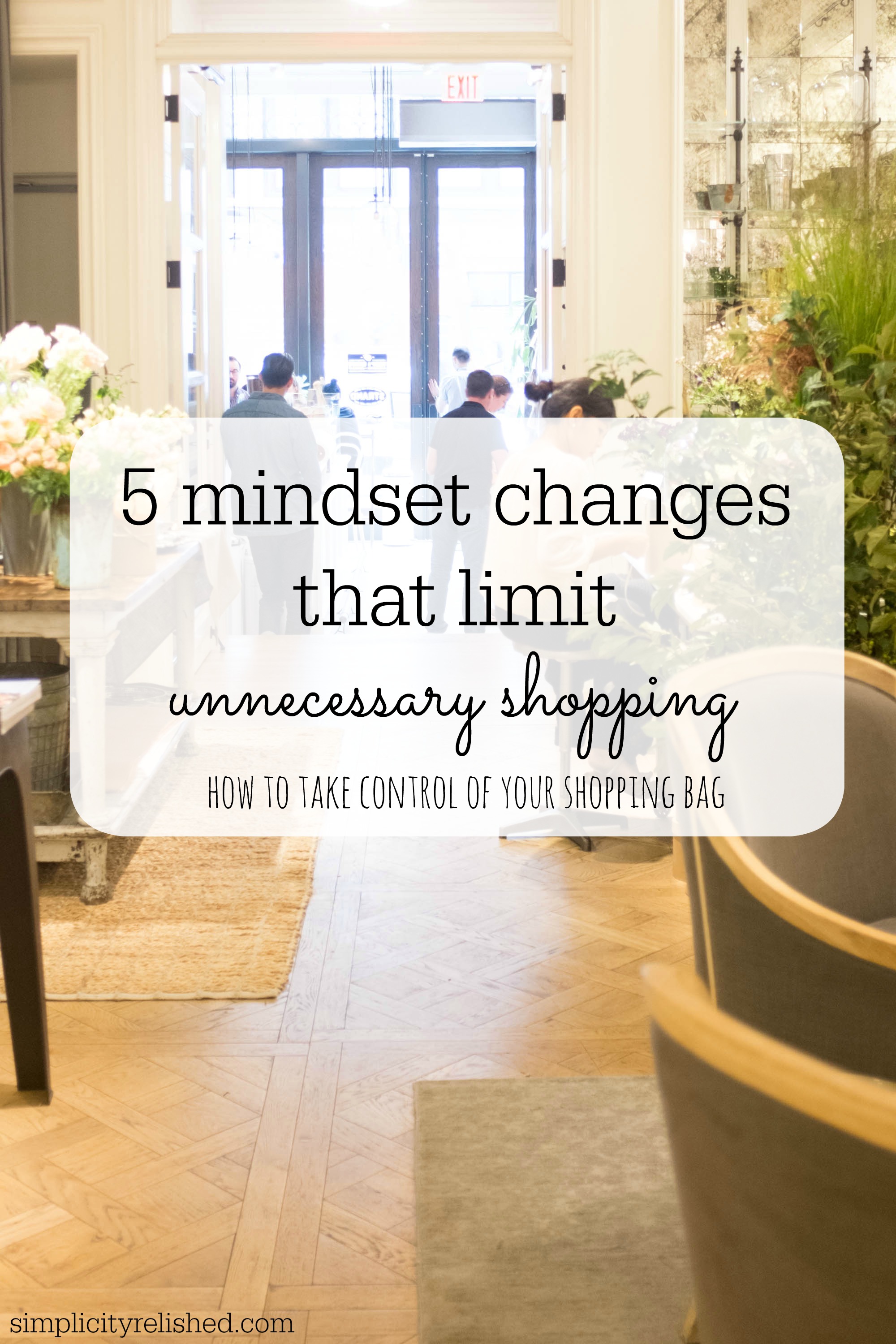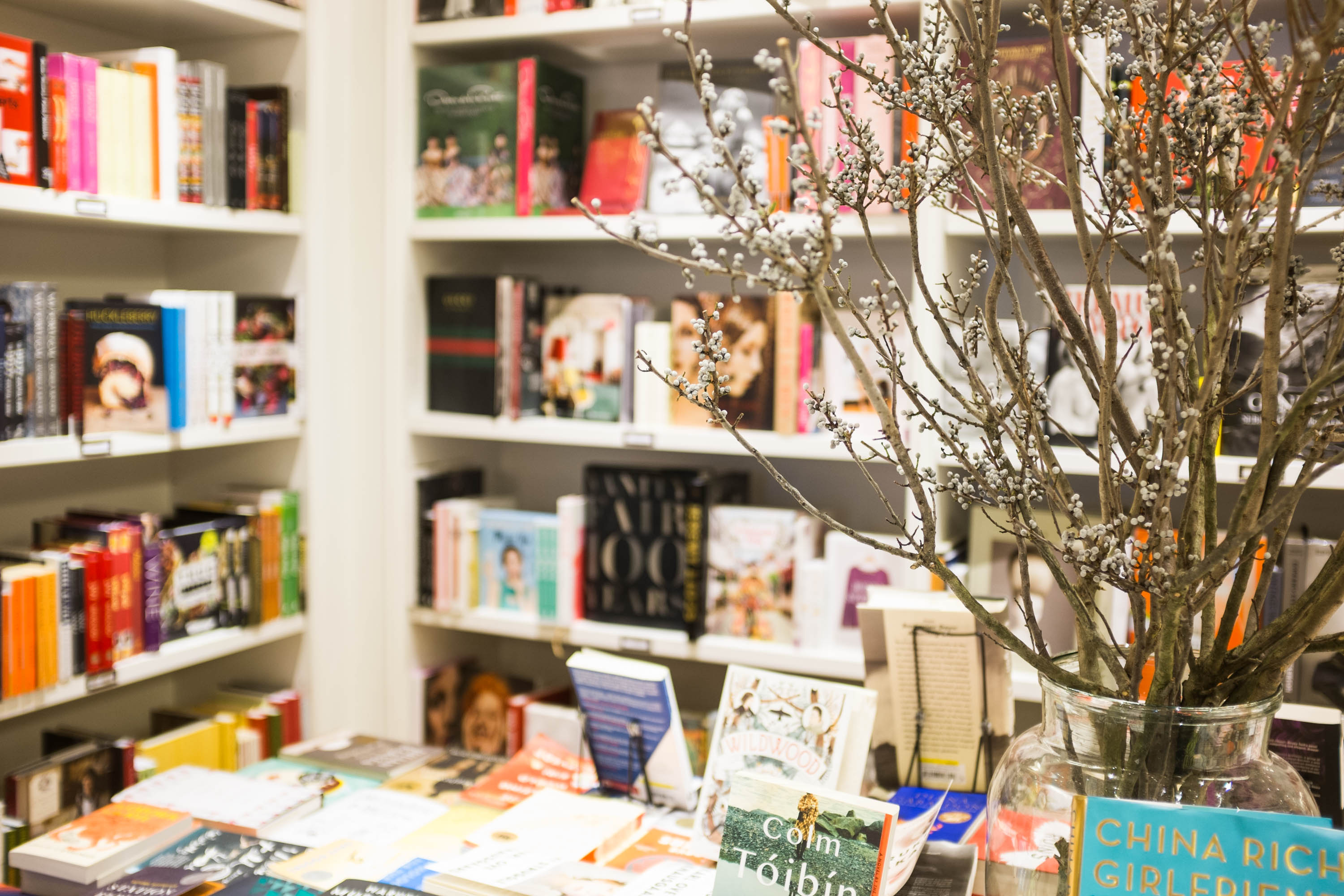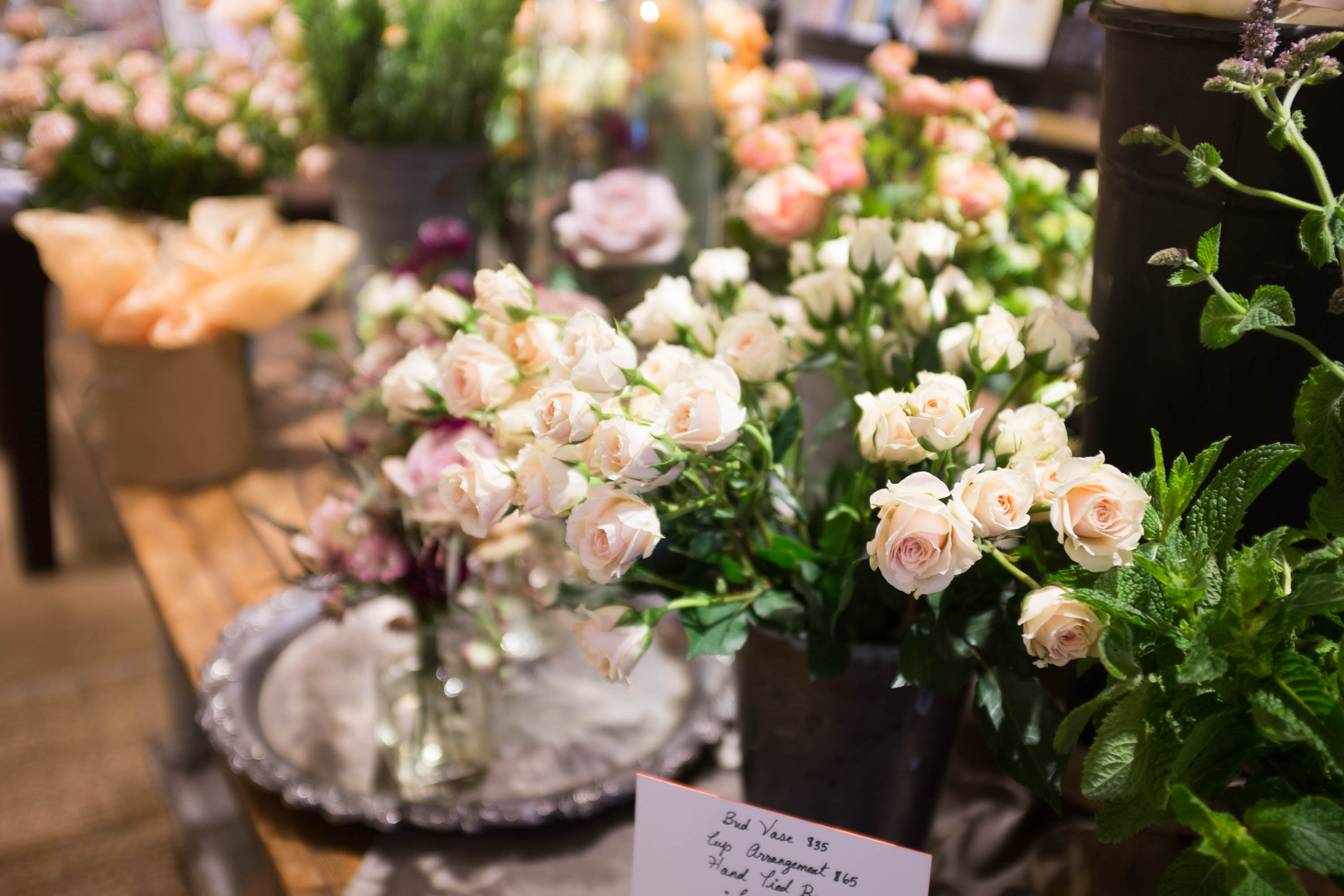I have come a long way in this area. I used to be able to enter the first letter of my favorite brands into my search bar, and their full URLs would pop up. That’s how often I “window-shopped” online. Of course, said window-shopping quickly became real shopping.
There are many reasons to limit unnecessary shopping, but they might not be the ones that immediately come to mind. Avoiding unnecessary purchases can certainly save money, but saving money isn’t everyone’s highest priority. Perhaps there are things you desire more deeply than a stash of cash: courage, generosity, community, purpose, joy… and limiting your shopping can help with those things, too.

You see, shopping is an act of consumption– often dissociated with the impact that it has on the rest of the world. When we mindlessly shop, we disconnect ourselves from our true needs, our deepest desires, our immediate communities, our knowledge of global issues, and even our sense of self.
So how do we change this? As with most things, I believe it has to be a combination of new habits and mindset changes. And my goal today is to convince you– at least on an intellectual level– to change the way you think about unnecessary shopping.
5 Mindset Changes That Limit Unnecessary Shopping
1) Somebody strategically decided to put this product in front of me today.
I am quite the cynic when new technological gadgets come on the market. Whenever someone remarks that they really need the new Apple watch or a smartphone upgrade, I’m tempted to remind them that they had no idea they needed those things until they were invented.
We respond to what we see, but so often we’re only reminded of what we think we “need” when it’s put in front of us. Marketers know this, so they try to put products in front of us as often as possible. The truth is, though, that the less of these products we see, the less we feel the need to buy them. Think about your needs before someone has a chance to tell you what you need.
2) Shopping is not a legitimate hobby.
I like to consider myself a self-respecting plant hobbyist, though I can hardly boast of much skill. Still, shopping might be a leisure activity but it’s not a hobby (in much the same way that watching television is not a hobby). Hobbies should bring value into our own lives, if not also the lives of other people. They should make us more interesting. They should bring us inspiration and relaxation, and develop a part of ourselves that would otherwise be dormant. As far as I can tell, shopping did none of those things for me.
3) Buying new things won’t greatly change people’s opinions about me. If it does, their opinions don’t matter.
There’s the famous quote from Dr. Seuss that says, “People who mind don’t matter, and people who matter don’t mind.” While there’s no point in being reckless in front of people who might mind, I certainly find this proverb to be true of acquiring new things. When I was in the thick of my shopping habit, I was constantly obsessed with how a new item would make me look to others. How would it change my image? What would people think of me as I walked by?
I strongly believe that vanity can be a sickness, but the more important lesson I learned was that few of the people who mattered the most to me cared very much about whether I bought something new. My friends might have been excited about my new acquisition, but their opinions of me weren’t changed by my shiny new objects. There is freedom in no longer feeling like you have to shop to keep up appearances. Very few people are watching, anyway.
4) There was a social and environmental cost to the production of this item, and those costs are likely hidden from me.
Who made your clothes, your shoes, or your accessories? It’s likely that you have no idea– and it’s not necessarily your fault. The fashion industry has, for the most part, hidden away the people who made the product, and for good reason on their part. Conditions are unsafe, workers are underpaid (and sometimes underage), and there’s nothing “hip” about the inside of a factory. Brands would much rather have us stare at the beautiful faces and bodies of models wearing new clothes, rather than the tired bodies of exploited workers.
Grim as it may sound, realizing the impact of my shopping on the global poor changed my mind quickly about it. And because it’s harder to come upon things that are ethically made, my shopping has decreased quite a bit. And when I do shop now, I research every company for their social responsibility. If it’s not to my satisfaction, I don’t buy.
5) Whatever I don’t spend today can be invested or given away.
What’s the opportunity cost of unnecessary shopping? It’s the act of throwing away the potential of those dollars into an item that I don’t need to add. If I save those dollars, perhaps their value will grow over time. If I give away those same dollars that very day, then perhaps they will rescue someone in need, give care to someone suffering, or provide much more joy than a new dress would ever provide for me.
When I think about what my money could be doing instead of going to that trendy shirt that I might only wear a few times– and that likely contributed to some form of injustice far away– the decision is simple. I can keep that money until I find a better use for it, or I can give it away immediately so that it is better spent today.

The bottom line: recognize your power as the consumer
Consumption is not a bad thing– but like everything else, it has its place. As consumers, we get to decide what that place is. We vote with our dollars, and the market will have to listen. So the more mindful we are of how we shop, the fewer unnecessary things we buy, and the more socially conscious we choose to be, the greater likelihood the industry will change. It’s starts with you and me.
[Tweet “5 mindset changes to limit your unnecessary spending! #minimalism via @daisylinshih”]


Although I love the occasional new item, I think about these points you present. #1 is the most important for me. I always think “do I truly” need it?!
http://www.cupcakendreams.com
Thanks Anne. Yes… but corporations work so hard to hide their externalities. I’m all about supporting businesses that do things well, and do good for all involved. It’s a challenge, but it can be done!
Thanks Hannah! I appreciate you reading!
Fantastic post, Daisy. If every consumer followed #4, our world would change overnight, and be better for it. Thank you.
I love this post Daisy 🙂 especially 2 and 3!
Yes!! You and I think a lot alike in our journey in simple living and adventure!
Thanks Alyssa! Yes your shopping ban is awesome!
Thanks girl! Glad to hear this is helpful– it’s good to have something to remind you of why you might not want to buy that hundredth thing! 😉
You’re so right, Brittany! I’ve definitely spent more money than I needed to, but the greater harm was probably done in my sense of “enough” and the impact I was making. It’s so hard to realize that bargains do come with social costs– and even if we’re not the ones paying, someone else certainly is. Thank you for reading, friend!
Thanks girl! I know… I have days when I just want to buy everything. That’s when it’s so important for me to remember why I don’t!
Thanks for reading, Daisy!! Yes… shopping never would never satisfy me for long, and I realized I just had to stop.
Yes!! That is a great way to kick unnecessary shopping to the curb. I did that too and it’s made it so much easier not to be tempted by all the deals!
I actually had to stop subscribing to all my sale store emails because it was such a trap for me. Those emails are put there on purpose for me to see. After that realization I downgraded my email subscriptions to one time per week and the ease I felt was awesome! =)
Preach, sister! I used to shop a lot too but after getting myself in debt from a little item here, & a little item there, I wised up. Shopping is fun but definitely is an obstacle to what we really want in life.
Oh man, this was so helpful. I’ve been falling into the trap of unnecessary shopping a lot lately. I’m consciously aware that I’m doing it, but it’s so hard to stop myself. Thanks for these awesome tips!
xoxo
Kat
I definitely needed to read this! This month was filled with so much pointless spending! Keeping these in mind.
I love how your points are about so much more than just saving the money (which is important, of course!). There is so much to our compulsion to purchase than just the numbers in the bank account. I have been thinking a lot more about #4 lately, thanks in part to the writing you’ve done on it. Thanks for consistently challenging and inspiring me with your writing!
These are all great points!! I especially appreciate you mentioning #4. Such an important thing to think about!
Point 5 is a good one! I’ve been trying to curb my spending and concentrate more on the saving aspect. While I still buy things, I’m being much more thoughtful with what I do buy, and setting myself a smaller budget than I had before.
Away From The Blue Blog
Number 3 & 4 speak volumes for my life! This was a good post on how to re train the thought life!
Absolutely LOVE this!!!! Living in NYC forces you to be intentional about not buying too many items, but there are SO MANY options on every corner. Thanks for the reminderr 🙂
I can tell you first hand that these all matter 110%. We are trying to buy a house, and I enjoy shopping. I put myself on a buy ban this month, and honestly, I might do it again this month. It’s forced me to work with what I have and appreciate it. A while back you posted about unsubscribing to emails and that little tip helps tremendously! If you have no idea about a sale happening, you won’t be tempted. (;
http://www.accordingtokiki.net
Love this. I’m trying very hard to stay a minimalist and only buy new things when I need to replace the old. It’s quite liberating now having as much to choose from and, for me, it feels great to need to buy something new because I’ve used up or worn out the old.
http://www.california2catalonia.com
Wonderful points! We’re currently living a really minimalistic lifestyle and we’re way happier this way.
As a former problem shopper, I think this is fantastic advice. Number 2 and 3 especially resonate with me (but there are all important and definitely true!)
Great advice, per usual, Daisy! This will certainly help me as I get through the last months of my year long shopping ban